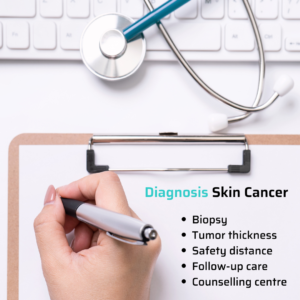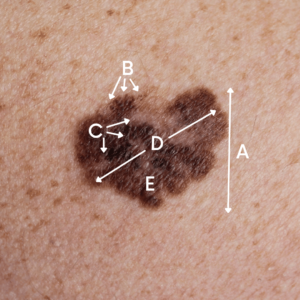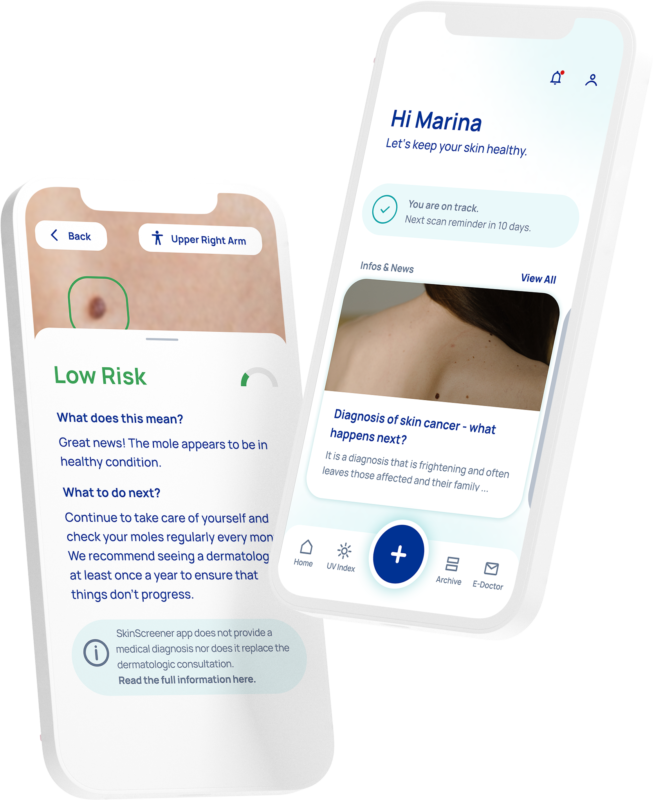Sunlight is essential for humans. It stimulates vitamin D production and provides warmth and well-being. However, sensible exposure to the sun is the most important part of skin cancer prevention.
Sun damage are damages to the skin caused by frequent and too intensive exposure to UV rays. The most common form of acute skin damage caused by UV radiation is sunburn. Other forms of sun damage to the skin are skin aging, sun allergy and Mallorca acne.
UV Rays Facts
-
UVA rays are responsible for premature skin ageing. They penetrate deep into the skin and step by step destroy its elasticity. - UVB radiation is about 1000 times more sunburn-inducing than UVA radiation.
- Half of the UV radiation within a day is emitted between 11:00 am and 3:00 pm.
- The optimal sunscreen protects against sun allergy.
- In the case of Mallorca acne, slowly accustom the skin to sun exposure and use oil-free sunscreen.
Sunburn
⦁ most common form of acute sun damage
⦁ Redness, swelling and blistering of the skin is a reaction to the damage of skin cells by UV radiation.
⦁ Skin cells damaged to such an extent that this leads to inflammatory reactions and burn-like symptoms.
⦁ thereby discomfort such as detachment of the skin, feeling of tension, itching and pain.
⦁ in the case of severe sunburn, unsightly pigmentary shifts may be left remind
Skin ageing
⦁ triggered by years of exposure to UVA and UVB rays.
⦁ Elasticity of the skin is destroyed and irreparable damage occurs
⦁ resulting in light-induced skin ageing with flaccidity, wrinkling and pigmentary disorders
Sun allergy
⦁ triggered by long-wave UV rays
⦁ Pathological reaction of the skin to sunlight
⦁ resulting in a rash with redness, blisters or nodules that are very itchy
Mallorca Acne
⦁ special form of sun allergy triggered by UVA rays.
⦁ Interaction of UV rays and oily sunscreens
⦁ arises a few days after the first intense sunbathing of the year.
Remember that sun damage to the skin has negative long-term consequences. Apart from the fact that sun-exposed skin ages rapidly, skin cancer can develop from the damaged skin.
Protect your skin with the right sunscreen and make an appointment with your dermatologist if you see a conspicuous mole or skin change.
You are in your skin for life.







